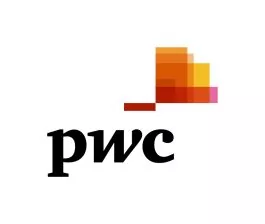![]() ,
Sharone L. Gulliver
,
Sharone L. Gulliver ![]() ,
Bill P. Nakano
,
Bill P. Nakano ![]() and
Marc Vanasse
and
Marc Vanasse ![]()
This Tax memo describes the Canada Revenue Agency's (CRA's) policy on taxpayer access to CRA audit reports and other documents that support the issuance of a proposal letter. It suggests what to do if an auditor is reluctant to provide this information.
Background
Information a CRA auditor used to create or support positions taken in a proposal letter must be made available to you upon an informal request, at the time the proposal letter is issued. This information can help you understand the basis of the proposal and the factual assumptions relied on by the auditor, especially when the basis is not adequately outlined in the proposal letter.
We understand that, in some cases, CRA auditors are reluctant to provide this information and refer taxpayers to the formal request process under the Access to Information Act (ATIA). Formal requests under the ATIA should be made only as a last resort, because they often involve significant delays, which can prevent the information from being available by the deadline for you to make representations to the proposal.
CRA's stated policy: Early disclosure of information
CRA Audit Manual Chapter 3.4.7 – "Informal Request for Information" states that "Information may be disclosed when requested informally after a proposal letter is issued..." Examples of information that can be released under an informal request are:
- the Auditor's Report;
- correspondence and internal memoranda, appropriately severed when necessary;
- related correspondence with headquarters (e.g., technical interpretation requests or opinions and referrals to specialized sections relating to a specific person);
- audit working papers, excluding third-party information, leads, disclosure of audit techniques and information from informants; and
- related reports from CRA valuators, appraisers, Electronic Commerce Audit Specialists, science advisers, external consultants' appraisals and reports.
The CRA will review all documents before their release to sever information related to third parties or information subject to solicitor-client privilege. It will also exclude any information that may reasonably be expected to cause injury if disclosed or that may restrict the CRA's ability to administer the Excise Tax Act or Income Tax Act. Notwithstanding these exclusions, an informal request should provide valuable information that will assist in the preparation of representations to the CRA proposal.
Informal request for information is refused or delayed: What to do
If a CRA auditor is reluctant to respond to informal requests for audit information made at the proposal stage or flatly refuses to provide this information, we suggest that the auditor be reminded or advised that:
- The CRA Audit manual provides for informal requests for information after a proposal letter has been issued (CRA Audit Manual Chapter 3.4.7). The CRA recently re-emphasized this policy at the Canadian Tax Foundation (CTF) conference on Tax Dispute Resolution, Compliance, and Administration in Canada (June 2012).
- The CRA has acknowledged that the ATIA and the Privacy Act were intended to complement and not replace existing procedures for access to government and personal information. The CRA has also indicated that, in cases when an informal request has been made within CRA stated guidelines, a formal request has no added value to the CRA or the requester.1 Therefore, a refusal to provide this information is inconsistent with the CRA's policy of transparency and fairness.
- Unless a satisfactory resolution to, or explanation for, the refusal is obtained, you will take the matter up through the levels of the dispute resolution process (Team Leader, Audit Manager, Assistant Director-Audit), as suggested by the CRA at the CTF conference on Tax Dispute Resolution, Compliance, and Administration in Canada – Access to Information During Tax Audit (June 2012).
In addition, if the information is needed to fully understand the basis of the proposal, you can request that the deadline to provide representations to the proposal be extended until the information requested is provided.
Footnote
1. CRA Document 2011-0403751C6 "2011 STEP Conference-Q8– Access to Information," June 2-3, 2011.
The content of this article is intended to provide a general guide to the subject matter. Specialist advice should be sought about your specific circumstances.

